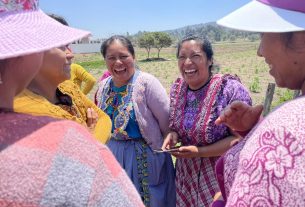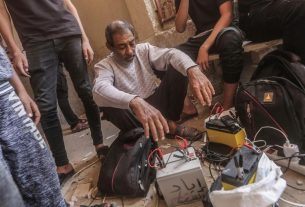Introduction
In October 2024, a controversial ruling by the Confederation of African Football (CAF) ignited tensions between Libya and Nigeria, leading to a wave of mass arrests of Nigerians residing in Libya. The fallout from this ruling has exacerbated existing anti-Nigerian sentiment and prompted calls for the deportation of Nigerian workers, revealing deep-seated issues surrounding migration, identity, and human rights in the region.
Background: The CAF Ruling
The CAF disciplinary ruling, issued in late October, favored Nigeria in a dispute related to the qualification of the Nigerian national football team for the Africa Cup of Nations (AFCON). While this decision was celebrated in Nigeria, it triggered a backlash in Libya, where the government and some local factions have blamed Nigerians for various social issues. This scapegoating has culminated in a series of arrests targeting Nigerians, reflecting a troubling trend of xenophobia.
Context: Migrant Dynamics in Libya
Libya has long been a destination for Nigerian migrants seeking better economic opportunities. However, the political instability and security challenges in Libya have led to an increasingly hostile environment for migrants, particularly those from sub-Saharan Africa. The CAF ruling has intensified these tensions, with some Libyan officials and media outlets calling for the deportation of Nigerian nationals, alleging involvement in crime and unrest.
Recent Developments: Mass Arrests and Deportations
Following the CAF ruling, Libyan authorities launched a crackdown, resulting in the detention of hundreds of Nigerians. Reports indicate that police conducted raids in various neighborhoods, detaining individuals without due process. Eyewitnesses described chaotic scenes where people were arrested based on their nationality rather than any evidence of wrongdoing.
These actions have drawn condemnation from human rights organizations. Amnesty International has highlighted the arbitrary nature of these detentions and the harsh conditions faced by migrants in Libyan detention centers. Many detainees are subjected to overcrowding, inadequate nutrition, and a lack of medical care, with reports of physical abuse while in custody.
Human Rights Concerns
Human rights advocates have raised alarm over the systemic abuses faced by Nigerian migrants in Libya. The UN Office for the Coordination of Humanitarian Affairs (OCHA) has called for urgent action to protect the rights of migrants, emphasizing the need for humane treatment regardless of nationality.
Reactions from Nigeria and the International Community
The Nigerian government has reacted strongly to the situation, demanding the immediate release of its citizens. On November 1, 2024, the Ministry of Foreign Affairs issued a statement condemning the mass arrests and urging diplomatic intervention to address the crisis. Nigerian officials have also sought to engage with Libyan authorities to ensure the protection of their nationals.
The international community, including the African Union and various human rights organizations, has echoed these calls. They emphasize the need for Libya to uphold international human rights standards and protect vulnerable populations from discrimination and abuse.
Implications for Nigerian Migrants
The mass arrests have created a climate of fear among Nigerians in Libya. Many are now considering leaving the country or seeking asylum elsewhere, fearing for their safety. This crisis not only jeopardizes the well-being of individuals but also threatens to strain diplomatic relations between Nigeria and Libya, complicating future cooperation in trade, security, and regional stability.
Conclusion
The recent mass arrests of Nigerians in Libya following the CAF ruling underscore urgent issues related to human rights, xenophobia, and the treatment of migrants. As the situation develops, it is crucial for both the Nigerian and Libyan governments to engage in dialogue to address the root causes of these tensions. Without prompt intervention, the risks of further discrimination and violence against migrant communities will continue to grow.
References
- CAF Disciplinary Ruling Triggers Libyan Backlash, Urges Deportation of Nigerian Workers Amid AFCON Fallout. (November 2024). Soccernet.
- Amnesty International. (October 2024). Libya: Mass Detentions of Nigerians Amid Political Turmoil.
- UN Office for the Coordination of Humanitarian Affairs (OCHA). (October 2024). Humanitarian Situation Report: Libya.
- Nigerian Ministry of Foreign Affairs. (November 1, 2024). Official Statement on Recent Arrests in Libya.
- Human Rights Watch. (October 2024). Libya: Systemic Abuses Against Migrants Continue.
This article provides a comprehensive overview of the ongoing crisis, incorporating the latest information and context from recent events.



